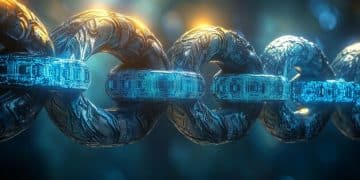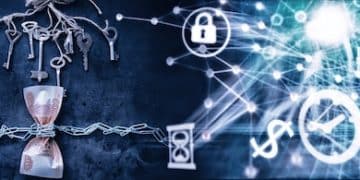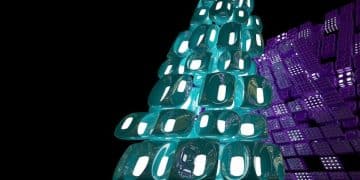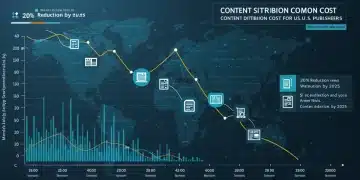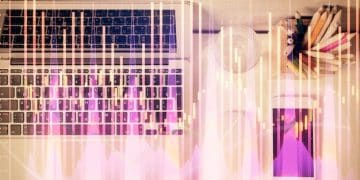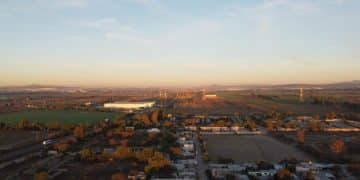DAOs and News: Decentralized Media by 2030?

The Evolution of News: Will Decentralized Autonomous Organizations (DAOs) Control News Outlets by 2030? explores the potential shift in news dissemination, examining how DAOs could revolutionize media ownership, editorial control, and content distribution, promising a more democratic and transparent information ecosystem.
Will the news we consume in 2030 be controlled by decentralized autonomous organizations? The rise of blockchain technology and DAOs is prompting serious questions about the future of journalism and media ownership. Let’s delve into the evolution of news: will decentralized autonomous organizations (DAOs) control news outlets by 2030?
The Current State of News Media
Traditional news media faces numerous challenges, from declining trust to financial instability. Understanding these issues is crucial for grasping the potential disruption DAOs could bring. The conventional model is struggling to adapt to the digital age, leaving space for innovative alternatives.
Decreasing Public Trust
One of the biggest problems for legacy media is the erosion of public trust. Factors like perceived bias and sensationalism contribute to this decline. Rebuilding this trust is essential for the survival of traditional news organizations.
Financial Pressures and Ownership
The advertising revenue model that once sustained journalism has been severely disrupted by the internet. This has led to cost-cutting measures and, in some cases, consolidation of ownership. Independent journalism is becoming increasingly rare.
Consequently, this centralization can influence the news agenda, raising concerns about diversity of opinion and editorial independence.
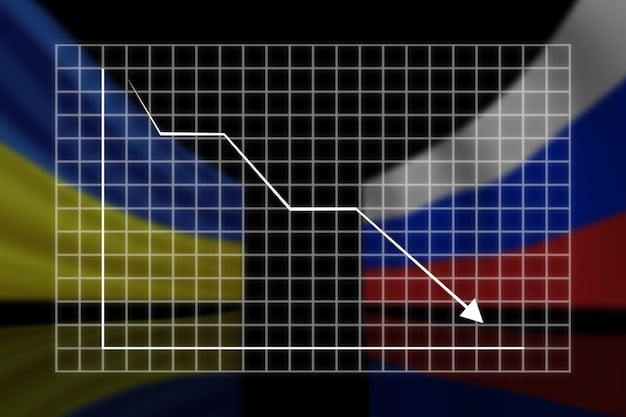
These shifts can jeopardize the integrity of the news. As a result, the pursuit for alternative funding models becomes crucial for journalism’s future.
Challenges like these create an opportunity and need for innovation within the sector, setting the stage for potentially radical changes.
The old way of doing things may not be sustainable, making space for organizations like DAOs to come in and make a difference.
In conclusion, news media experiences a growing range of challenges that necessitate innovative solutions and changes to the traditional models.
What are Decentralized Autonomous Organizations (DAOs)?
DAOs are community-led entities governed by rules encoded on a blockchain. This makes them transparent, democratic, and resistant to censorship. They represent a new way of organizing and managing resources.
How DAOs Function
DAOs operate using smart contracts, which automatically execute decisions based on a consensus mechanism. This ensures that every member has a voice and that decisions are made fairly and transparently.
Key Characteristics of DAOs
- Transparency: All transactions and decisions are recorded on the blockchain, making them publicly auditable.
- Immutability: Once a smart contract is deployed, it cannot be altered, ensuring the rules are consistently followed.
- Community Governance: Members vote on proposals, giving them direct control over the organization’s direction.
- Efficiency: Automation reduces the need for intermediaries, streamlining operations and cutting costs.
DAOs could potentially address many shortcomings in traditional organizational frameworks.
These characteristics make DAOs intriguing as possible replacements for more conventional corporations.
This unique structure enables new levels of involvement for stakeholders that were previously inaccessible.
Smart contracts enable a wide array of opportunities and applications across many sectors, including news and journalism.
Ultimately, DAOs provide a completely new framework for decision-making and organizational management by using blockchain technology.
DAOs in the News Industry: Potential Benefits
The integration of DAOs in the news industry could lead to greater transparency, impartiality, and community involvement. This could help address the trust issues plaguing traditional media.
Increased Transparency and Trust
With DAOs, the editorial process can be made transparent, reducing concerns about bias. Readers can see how decisions are made and hold the organization accountable.
Direct Funding from Communities
Instead of relying on advertising or wealthy owners, DAOs could be funded directly by their communities. This would align incentives and reduce the influence of external pressures.
Decentralized Content Creation and Distribution
DAOs could enable a more democratic approach to content creation and distribution. Anyone could contribute, and the best content would rise to the top based on community votes.

The current system favors those with power and influence, and DAOs could open doors for a more fair and balanced media system.
DAOs may enable more unique stories to be told, from more distinctive points of view, than is the currently the norm.
This innovation would involve everyone more deeply in the creation and consumption of news, making journalism more community-owned than ever.
Challenges and Concerns
Despite the potential benefits, the adoption of DAOs in the news industry is not without challenges. Issues such as regulatory uncertainty, scalability, and the potential for misinformation need to be addressed.
Regulatory and Legal Hurdles
The legal status of DAOs is still unclear in many jurisdictions. This creates uncertainty for news organizations that want to adopt this model. Overcoming these hurdles is essential for widespread adoption.
- Legal Framework: The absence of clear legal frameworks complicates operations.
- Taxation: Tax implications for DAOs are not well-defined.
- Liability: Responsibility for content and decisions needs clarification.
Scalability and Technical Limitations
DAOs can be difficult to scale, especially as the community grows. Technical limitations can also hinder their effectiveness. Addressing these challenges is crucial for their long-term success.
Misinformation and Governance
The decentralized nature of DAOs can make it harder to combat misinformation. Ensuring responsible governance and content moderation is a key challenge.
These limitations need innovative solutions to guarantee DAOs’ dependability and reliability in distributing news.
Addressing these obstacles will be necessary to unlock the full potential of DAOs in news media.
Concerns about these constraints cannot be ignored. Overcoming these hurdles is necessary for the widespread acceptance of DAOs in information delivery.
Potential Scenarios for 2030
By 2030, we could see a mix of traditional news outlets and DAO-based media platforms. The extent to which DAOs dominate will depend on how effectively they address the challenges outlined above.
Scenario 1: Coexistence of Traditional and DAO Media
Traditional news outlets adapt by incorporating blockchain technology and community governance features. DAOs emerge as niche players, focusing on specific topics or communities.
In this instance, DAOs serve as a valuable supplement, providing different viewpoints and methods of engagement, to traditional formats.
Scenario 2: DAOs Gain Significant Market Share
DAOs successfully address regulatory and scalability challenges, attracting a large user base. Traditional media struggles to compete, leading to consolidation and decline.
With their increased transparency and community-driven strategy, DAOs might become increasingly well-known as sources of information, drawing readers away from conventional sources.
This change would signify a substantial restructuring of the media. The manner in which news is produced, shared, and accessed would fundamentally changed.
Scenario 3: Hybrid Models Emerge
A combination of DAOs and traditional media, leveraging the strengths of both. Larger organizations could integrate parts of DAOs, such as community involvement, to maintain relevance.
This synergistic strategy would lead to a greater balance of financial stability and decentralized management, benefiting both the journalism and its audiences.
By 2030, the media environment may be quite diverse because of these scenarios. It may include conventional organizations as well as creative DAO initiatives.
Preparing for the Future of News
To prepare for the potential shift towards DAO-controlled news outlets, individuals and organizations need to adapt. This includes developing new skills, embracing new technologies, and fostering media literacy.
Developing Media Literacy Skills
Given the risk of misinformation, it’s more important than ever to improve media literacy. This includes the ability to critically evaluate sources and identify bias.
Embracing New Technologies
Staying up-to-date on blockchain technology and DAO governance models is crucial. This will allow individuals and organizations to leverage these tools effectively.
Journalists and media professionals would particularly benefit from understanding blockchain technology, smart contracts, and decentralized governance.
These skills are essential for succeeding in the changing media environment.
Supporting Independent Journalism
Supporting independent journalists and organizations that prioritize transparency and accountability is vital. This will help ensure a diverse and reliable news ecosystem.
Supporting these journalists helps advance journalistic ethics and aids in the creation of high-quality, objective news reporting.
As we move closer to 2030, maintaining ethical standards becomes essential to navigating the complexities of the changing media environment.
Ultimately, adopting these guidelines will help everyone to handle the shifting media environment with more assurance and knowledge.
| Key Point | Brief Description |
|---|---|
| 📊 Declining Trust | Traditional media faces decreasing public trust due to perceived bias and sensationalism. |
| 🌐 DAO Benefits | DAOs offer increased transparency, community involvement, and direct funding. |
| ⚖️ Challenges | DAOs face regulatory uncertainty, scalability issues, and the potential for misinformation. |
| 🔮 Future Scenarios | By 2030, traditional media and DAOs could coexist, DAOs could dominate, or hybrid models could emerge. |
Frequently Asked Questions
▼
A Decentralized Autonomous Organization (DAO) runs by rules encoded on a blockchain, offering transparency and community-led governance through smart contracts. This facilitates direct member participation and ensures immutable decision-making.
▼
DAOs make the editorial process open and auditable on the blockchain. This allows readers to see how decisions are made, fostering transparency and accountability, thereby rebuilding trust in news media.
▼
DAOs face multiple challenges including regulatory uncertainty, scalability issues, the potential spread of misinformation, and technical limitations. These challenges need innovative solutions to ensure their reliability.
▼
DAOs can receive direct funding from their communities, reducing reliance on ads or wealthy owners. This aligns financial incentives and reduces external influences, fostering independent and community-supported journalism.
▼
As DAOs decentralize content creation, the risk of misinformation increases. Media literacy is crucial to critically evaluate sources, identify bias, and ensure informed consumption of news in the evolving media landscape.
Conclusion
Whether DAOs will dominate news outlets by 2030 remains uncertain. However, their potential to disrupt traditional media is undeniable. By addressing the challenges and embracing the opportunities, we can create a more transparent, democratic, and trustworthy news ecosystem.
